Graham Reid | | 5 min read

Paul shoves the cap of his beer bottle into his jacket pocket and settles deeper into the wooden chair. "You know what I say to people who come here and find we don't have television in the rooms or cellphone coverage? I say, 'So what part of the name West Coast Wilderness Lodge' didn't you understand?"
We laugh and clink bottles beneath a cloudless sky while squirrels and Stellar Jays flit through the pines around us.
No, you don't come to Paul and Patti Hansen's rustic lodge on the Sunshine Coast north of Vancouver to be engaged by technology. This is where you come to fish, walk, hike, go kayaking or sail by day, and indulge yourself in the delights of their kitchen and wine cellar by night.
The West Coast Wilderness Lodge feels very remote -- Paul says the population of nearby Egmont is "two", and he's not too far wrong -- and yet it is within an easy half-day drive of cosmopolitan Vancouver.
The Hansen's lodge -- which Paul and some mates built in six months, logging the land and cutting the timber as they needed it -- is at the northern tip of Sechelt Inlet, a long cove which reaches down to the town of Sechelt on an isthmus so narrow it almost creates an island of this picturesque peninsula.
And this being Canada the journey there is easy, the road excellent and often empty, and the people you meet friendly and helpful.
As I drive out of Vancouver across Lions Gate Bridge the houses thin out on the way to Horseshoe Bay for the ferry to Granthams Landing. I remember an odd fact I picked up somewhere: there are more Barbie dolls in Italy than there are people in Canada.
By Horseshoe Bay which lies flat and blue in the still morning light, wisps of cloud and mist woven between the mountains, the traffic has become negligible. The car ferry ploughs its quiet way through Howe Sound as gulls dance in the air behind the boat. I sit on the deck nursing a coffee and watching -- well, not much but the passing beauty of distant islands, gulls and the occasional fishing boat.
The ferry pulls in at Granthams Landing and I take a left into the small town of Gibsons which many tourists unwittingly pass by.
Only 15 kilometres from downtown Vancouver but half a century behind it, Gibsons looks like a series of postcards: wooden houses on rocky bluffs; quaint fishing boats and yachts in the harbour, their reflections almost perfect mirror images in the still water.
Named for its founder George Gibson -- whose bronze statue stares into the marina -- the town is sheltered by the shoulder of Mt Elphinstone and boasts fine seafood from fishing boats which deliver it fresh to the little restaurants hugging the harbour.
But Gibsons is also world famous: it was here at Molly's Reach cafe that the popular Canadian television series The Beachcombers was filmed. Gibsons provided the backdrop for the programme which ran for 19 years from 1971 and was seen in 35 countries, New Zealand included.
I remember it well, it was my first serious glimpse of Canada on television, and on this bright morning I find myself outside Molly's taking photographs for Canadian tourists who want themselves pictured outside this atmospheric cafe (actually a replica of the original which was destroyed in one later episode).
Gibsons is a charming little town with art galleries and cafes, a helpful visitors' centre, and posters announce musical events, the annual Fibre Arts Festival and other craft fairs. At an artist's shop on the pier the sign on the door reads: "Closed, gone home to my other job. Take off if I don't have daycare. That is all. Bye".
There is a lot to like about Gibsons -- variously described as the Gateway to the Sunshine Coast or The Hawaii of the North -- but when the girl in the coffee shop learns I am driving up the coast she says, "Oh, you gotta stop at Roberts Creek, now that’s real pretty".
And so, just up the road, I pull off the highway and go to Roberts Creek, a huddle of a few stores (among them the folksy and locally famous Gumboot Cafe), and which has the feel of a town that has graduated from a retreat for alternative lifestylers to a haven for the discreetly moneyed.
Down by the mouth of the creek where artists have set up their easels is a vividly coloured mandala painted on the ground of the carpark. It is about 15 metres across and was painted by 300 local residents. The rugged shoreline here is strewn with bleached tree trunks and houses of conspicuous wealth are tucked between the pines.
As the girl said: real pretty.
And so my drive up the coast continues to the busy town of Sechelt named for the Shishalh tribe who were first inhabitants here. The town is interesting enough with historic buildings and the like, and the Sechelt Indian Band (as the local tribe is called) retain ownership of much of this region. But there are also kitschy trinket shops so after a brief amble around I push on, past the condo development sites on the outskirts and further on up the coast.
Time and again I pull off the smooth highway to go down to the coast and at Halfmoon Bay and then Irvines Landing -- another apostrophe-free name -- I find a series of small harbours, lakes and parks. My journey which can take a few hours is stretching out to a leisurely day and dozens of photographs.
It is late afternoon when I reach tiny Egmont and the West Coast Wilderness Lodge among the pines.
When I arrive Paul is puzzling over the computer, clearly a man mostly unfamiliar with, and usually irritated by, such things. In fact over beers he reveals he built the place but isn't a builder, and he's now in the hospitality business but had no previous experience at that either.
He was in outdoor education and 10 years ago decided to get his own place. He found this property with 360 metres of private beach and near the famous Skookumchuck Narrows where the tidal flow between a narrow section of the inlet rushes over dramatic rapids which appeal to courageous kayakers and playful seals.
Eight years ago they cleared a section of the land and built cabins in the pines and suites with astonishing views across the inlet, and the first class restaurant.
"Had a few problems with chefs in the early days. The first was the drummer from that 80s band Loverboy," he says. "Remember them?"
And I do, all poodle hair, red leather pants and hard rock ballads.
"The second was an Italian guy. He'd only been here about three days and a woman had a heart attack in the lounge. She was alright, but he said the evil eye was on the place and walked out.
"So I had 40 people for dinner and was running between the kitchen to make the meals and then putting on a jacket to greet the guests."
He laughs loudly and you get the impression this is a man who copes well in troubled times. The lodge is a result of pastiche and pragmatism too: the floors were salvaged from Vancouver schools which were being demolished, doors in a couple of cabins came from karaoke bars.
His location has been the key to his success: the view out of the restaurant windows was used for a promotion of Canada in Germany, and so he sees a lot of Europeans.
These days he also flies people in by seaplane from Vancouver, Victoria, Seattle and San Francisco, some coming just for a few glasses of wine, others staying for dinner or maybe a few days.
"And yeah, we actually do have a television -- satellite too -- in the rec room downstairs, and a pool table. You should try the hot tub later if you like."
Then we talk money and he tells me his room rates. In genuine innocence he asks if I think they are reasonable.
I think he’s joking, $CAN145 ($NZ190) a night for this view? And even less to be in the forest?
That night after dinner by the open fire in the lounge and beneath a 1920s canoe he used as a boy, we wander through the silent forest down to the landing. In the moonlight we make ripples in the water to watch the glitter of phosphorescent plankton. Above us the Milky Way is thick with stars.
"Not bad here is it?" he says.
West Coast Wilderness Lodge: www.wcwl.com
Sunshine Coast tourism: www.bbsunshinecoast.com and www.bigpacific.com

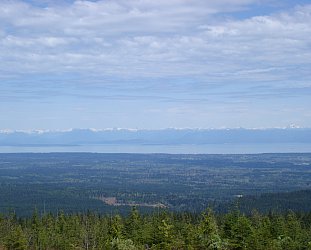
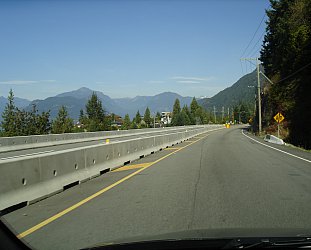
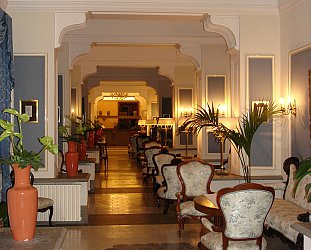
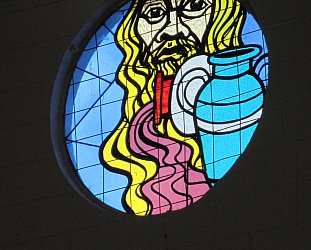
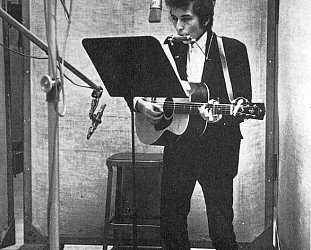
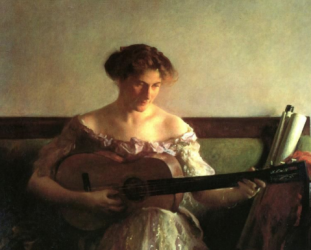
post a comment